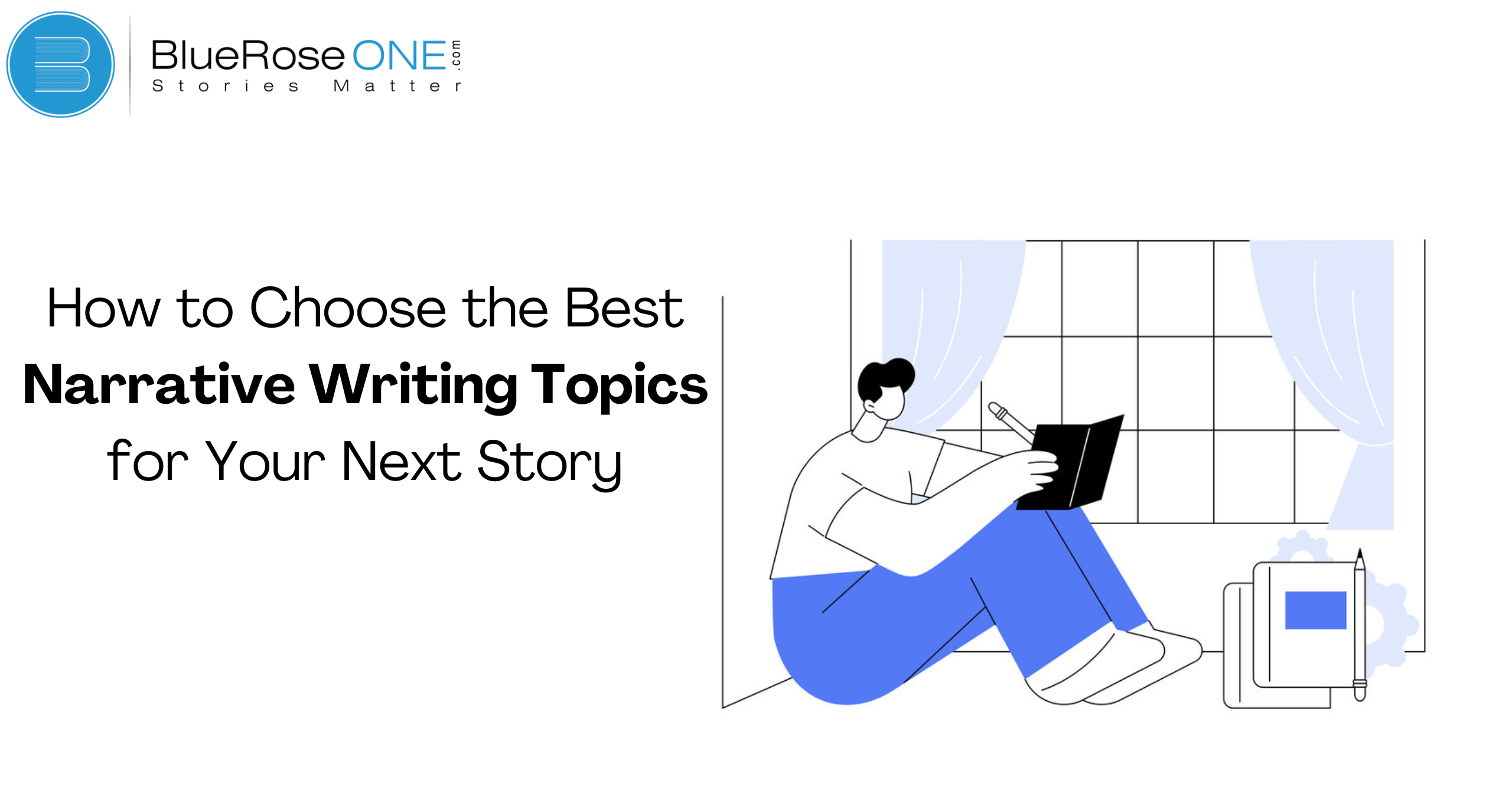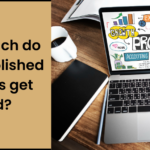Narrative writing is similar to word painting. Every story is a blank canvas on which your creativity can run wild, producing striking pictures and enduring characters. But picking the appropriate topic is the first, and frequently most difficult, stage. Now let’s get started choosing the ideal subjects for your next narrative writing topics.
What is Narrative Writing?
A story having a distinct beginning, middle, and end is told in narrative writing, a type of literary expression. This kind of writing, which vividly describes characters, situations, and events, frequently concentrates on personal experiences, fictional stories, or imaginary adventures.
Good narrative writing develops likable characters and an engaging storyline to keep the reader interested. Ideas for narrative writing subjects could include everything from fanciful adventures and historical retellings to early memories and life-altering experiences.
By fostering creativity and improving storytelling abilities, these subjects assist authors in crafting engrossing and engaging novels.
You may also like: List of Nobel Prize Winners in India (Updated)
Importance of a Strong Narrative
Engaging an audience with a compelling story is essential, especially when examining a variety of narrative writing subjects. In addition to keeping readers interested, it offers a logical framework that improves understanding and emotional ties.
Simple occurrences can be turned into gripping tales by a skilled storyteller, which helps people understand and remember difficult concepts.
In order to effectively portray themes, character development, and plot progression, authors must have this in place while writing on narrative writing topics. Strong narratives also encourage empathy in readers by allowing them to view the world from various angles, which is especially helpful in creative and educational settings.
Identifying Your Interests
Choosing the finest topics for your narrative writing requires that you determine your hobbies. Interests and passions from your own life might inspire originality and sincerity in your narrative. Your excitement comes through when you write about topics you are truly enthusiastic about, which draws readers into your story and makes it more interesting.
Think back on interests, events in your life, or topics that really speak to you. Rich, undiscovered tales are frequently waiting to be discovered in these places.
You’ll find that writing on subjects close to your heart increases your enjoyment of the writing process and helps you create emotionally charged, gripping narratives that enthrall readers.
You may also read: Pacing in Definition in Literature: Guide for Writers and Readers
Reflecting on Past Experiences
When choosing topics for narrative writing, it is essential to consider your past experiences in order to determine your interests. You might find themes and events that have a profound emotional impact on you by going back to revisit important occasions in your life.
This self-examination not only keeps your writing passionate and real, but it also helps you come up with real and captivating tale ideas. These experiences—whether they are from early years, transformative occasions in life, or personal triumphs—offer a wealth of material for story writing. By using these insights, authors can craft gripping stories that genuinely convey their distinct viewpoints to readers.
Knowing Your Audience
Knowing your audience is essential when choosing topics for narrative writing. Understanding your audience enables you to create material that is more engaging and relatable by adjusting it to their interests.
Take into account your readers’ age, tastes, and cultural background. Are they readers in their later years seeking classic stories or are they young adults seeking adventure?
You can write stories that truly connect with your audience and keep them interested by matching your narrative writing topics to their expectations. By using this strategy, you may boost the impact of your writing and raise the possibility that it will be shared and recommended, which will grow your readership.
You may also read: How to Avoid Plagiarism in Assignments: 10 Easy Steps
Audience Preferences and Expectations
While choosing topics for narrative writing, it is essential to comprehend the preferences and expectations of the audience. Stories that speak to their interests, feelings, and experiences are what readers are looking for.
Take into account demographic elements like age, gender, and cultural background in order to properly engage your audience. Create relatable and captivating stories by customizing your narrative writing subjects to address these qualities.
Additionally, you may better match your topics with the current passions of your audience by keeping an eye on popular genres and trends. Making your readers’ tastes and expectations your top priority will guarantee that your story grabs their interest and keeps them engaged.
You may also read: List of Top 10 Famous William Faulkner Boos of All Time
Brainstorming Ideas
Mind Mapping Techniques
Using mind mapping techniques can help with idea generation for narrative writing subjects. Mind mapping facilitates the creation of a variety of story ideas by providing a visual depiction of related thoughts. Choose a main theme, like “adventure” or “friendship,” and then explore related subtopics like “character development,” “challenges faced,” and “settings.”
Use terms, symbols, and colours to indicate various elements, encouraging organisation and creativity. Because mind mapping promotes nonlinear thinking, authors can investigate unusual connections and viewpoints.
Through the application of this strategy, prospective storytellers can effectively traverse the extensive terrain of storytelling opportunities, guaranteeing that they select the most captivating subjects for their subsequent story.
Free Writing
One useful method for coming up with ideas for narrative writing topics is free writing. Using this technique, you can set a timer for ten to fifteen minutes and write continually without caring about your grammar, spelling, or consistency.
Letting ideas come to you organically will help you access your subconscious and unleash your creative potential. By not censoring yourself, you can discover unique angles and storylines that you might not have considered otherwise.
Free writing can generate a wealth of raw material, providing a solid foundation to refine and develop compelling narrative writing topics for your next story.
You may also read: Top 10 Ebook Selling Platforms for Authors in 2025
Exploring Different Genres
Fiction vs. Nonfiction
Understanding the key distinctions between fiction and non-fiction is often necessary when selecting the greatest narrative writing subjects. Fiction offers writers countless creative opportunities by enabling them to construct fantastical worlds, characters, and storylines.
It’s perfect for narratives that use a fictitious perspective to examine themes, feelings, and experiences. Contrarily, non-fiction is grounded in truth and presents true stories, actual occurrences, and genuine experiences.
Writers that wish to enlighten, educate, or share true stories will love this genre. Writers can better ascertain which narrative writing topics align with their interests and objectives by experimenting with these various genres.
Popular Narrative Genres
Knowing the major narrative genres will help you be more creative when choosing topics for your narrative writing. Among the most popular genres are mystery, romance, science fiction, fantasy, and historical fiction.
Every genre has something special to offer: science fiction delves into futuristic ideas, fantasy transports readers to fantastic worlds, romance examines emotional connections, mystery enthralls with suspense and hints, and historical fiction offers a peek into the past.
You may write gripping stories that enthrall your readers by selecting a genre that plays to your passions and strong points. You can get inspiration and choose the ideal narrative writing topics for your next novel by exploring these well-liked genres.
You may also like: Footnote vs. Endnote: What’s the Difference and When to Use Each?
Considering Current Trends
What’s Trending Now?
Topics for narrative writing are changing as a result of contemporary trends that mirror the intricacies of contemporary life. These days, writers are becoming more interested in topics like social justice, mental health awareness, and climate change.
These subjects strike a chord with audiences in the modern era, offering a rich canvas for narrative. In addition, stories about virtual realities and futuristic settings are being stimulated by the growth of technology and digital platforms.
You may increase the relatability and reader engagement of your stories by include these aspects. The ideal topics for narrative writing are those that are currently generating discussion and can be incorporated into gripping, character-driven stories.
Adapting Trends to Your Style
It’s important to match trends to your approaches when choosing subjects for narrative essays. Keeping an eye on current events will help you come up with new ideas and make sure your story is relatable to modern audiences.
Diverse character representation, environmental concerns, and technological impacts are examples of current narrative writing trends that provide a wealth of material for original stories.
Make sure these trends complement your voice and style in order to successfully implement them. This combination not only increases the relevance of your narrative writing topics but also highlights your versatility and inventiveness, helping your work stand out in a crowded literary market.
Plot Development
Building a Strong Plot
Selecting ideas for your next narrative piece requires careful consideration in order to develop a compelling tale. A strong storyline draws readers in and offers a dynamic, yet structured, framework for character and theme development.
Make sure your primary conflict and important events are in line with the topics you have selected for your narrative writing. Subplots should be seamlessly woven into the main plot to sustain interest and give depth.
To keep readers interested, strike a balance between predictability and surprise. Recall that an engaging storyline improves your narrative’s emotional and intellectual impact in addition to moving the story along.
Plot Twists and Turns
Plot twists and turns are crucial components of narrative writing subjects because they provide the sense of unpredictability that draws in readers. Unexpected plot twists can give the narrative depth and complexity, turning a straightforward plot into an exciting journey.
Plot twists that work best are those that are both shocking and well-foreshadowed, adding depth to the story by pushing characters to new places and changing their course.
In addition to keeping readers interested, this dynamic method to narrative development invites them to consider the themes and lessons of the work. Plot twists and turns are a powerful tool for authors to use to enhance their narrative writing subjects and create captivating, unforgettable stories.
Conclusion
Selecting the ideal topic for a narrative essay requires a combination of creativity, investigation, and self-reflection. You can identify a topic that not only interests you but also connects with your readers by learning about yourself, your audience, trying out different genres, and gathering ideas from a variety of sources.
Keep in mind that the best stories originate from the heart, so pick a subject that interests you and let your creativity run wild.
















